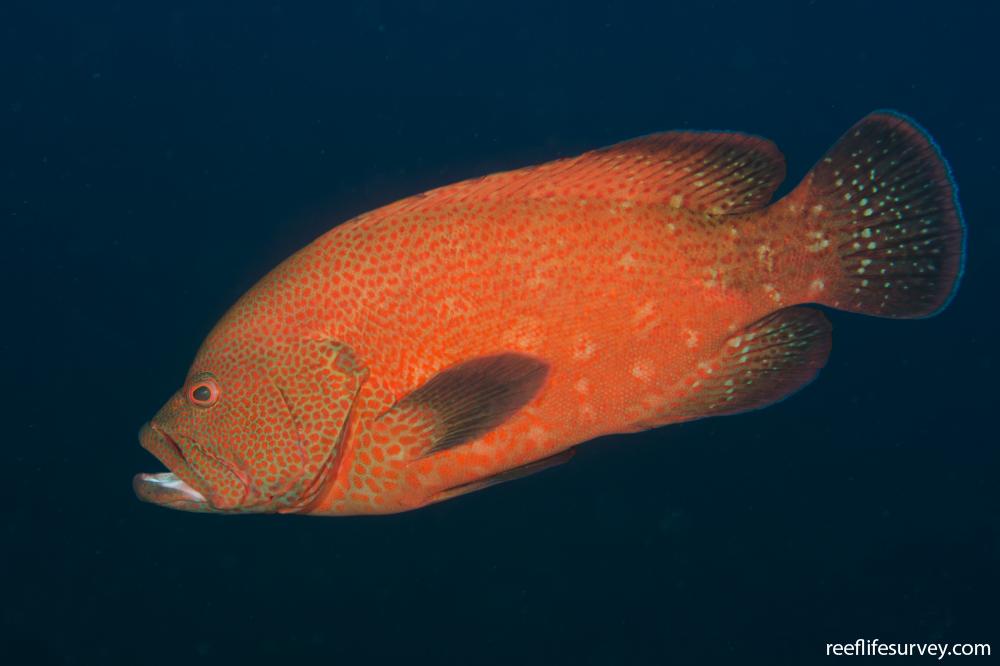Cephalopholis sonnerati
Tomato cod | Red Coral Cod | Red Rockcod | Tomato Grouper | Tomato Hind | Tomato Sea BassSimilar Species
Same Genus
Distribution
Tropical Indo-Pacific
Description
Light reddish/brown with a dense covering of dark or rusty-coloured spots on body, rather than bright spots of other Cephalopholis species (Rockcods). Rounded tail with a pale white margin, deep, stout body profile and a dark patch on upper region of gill cover. Indian ocean variation is more orange-red and has small white spots on head and often white blotches on body. Juveniles dark red-brown to almost black with a broad bluish white margin on tail fin. Length to 49cm.
Information
Max Size: 57 cm
Sea Temperature Range: 22-30.5°C
Depth: 10-150m
Habitat Generalization Index: N/A
Also referred to as the SGI (Species Generalisation Index), this describes the habitat niche breadth of the species. Species with values less than 15 are found in a relatively narrow range of reef habitat types (specialists), while those over 25 may be found on most hard substrates within their range (generalists). Learn more here.
Conservation and Rarity
IUCN Status: Least Concern
Occurrence: Infrequent (3.3% of sites)
Occurrence describes how often the species is found on surveys within its distribution. It is calculated as the % of reef sites surveyed by RLS divers across all the ecoregions in which the species has been observed
Abundance: Solitary (1 per transect)
Abundance is calculated as the average number of individuals recorded per RLS transect, where present.
Edit by: Ian Shaw





















